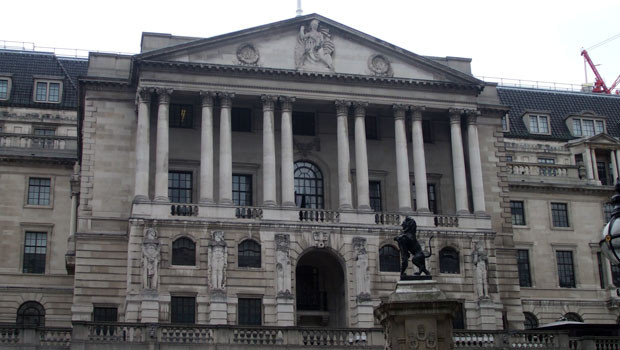Bank of England ups interest rates

The Bank of England upped interest rates on Thursday to 4.5%, the highest level since 2008, as it looked to tackle stubbornly high inflation.
The widely-expected 25 basis point increase is the twelfth consecutive rate rise by the Monetary Policy Committee since December 2021.
The MPC also looked to suggest another hike could be imminent, noting that its projections were conditioned on a market-implied path for the bank rate, which would see it peak at around 4.75% in the fourth quarter of this year.
Inflation currently stands at 10.1%, the highest of all the G7 group of developed economies.
The MPC said it expected inflation to have fallen sharply in April, as large rises in the price level a year ago drop out of the annual comparison and wholesale energy prices continue to ease.
But it also acknowledged that food price inflation was likely to fall back more slowly than previously expected.
As a result, consumer price inflation is now expected to remain at between 3% and 4% until next spring, before finally reaching the BoE’s 2% target by "late" 2024.
The BoE continues to expect UK GDP to be flat in the first half of this year, with growth then set to be supported by a stronger global economy, lower energy prices, fiscal support measures announced in the spring budget, as well as "the possibility that a tight labour market leads to lower precautionary saving by households".
The unemployment rate is forecast to remain below 4% until the end of 2024, before rising to around 4.5%.
Seven members of the MPC voted in favour of Thursday’s rise, while two argued to leave rates unchanged.
Anna Leach, deputy chief economist at the CBI, said: "With inflation having been at or above 9% for a full year, the BoE is rightly concerned that higher inflation could become entrenched.
"The future path for interest rates is as yet uncertain. With ongoing bouts of banking sector turbulence in the US, risks to financial stability seem likely to persist as global interest rates continue to ratchet up and the full impact of past rises continues to feed through."
Matt Smith, mortgage expert at Rightmove, said: "Over the last couple of weeks, average fixed-rate mortgages have been slowly edging up in anticipation of a 0.25% [rise]. There is unlikely to be any immediate changes in lender rates, and lenders are instead likely to wait and see what the impact of the BoE's comments on the outlook of the economy have on swap rates."